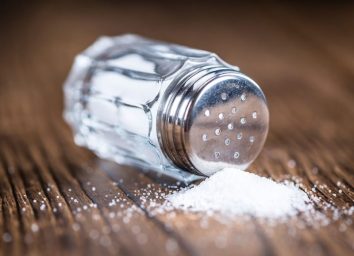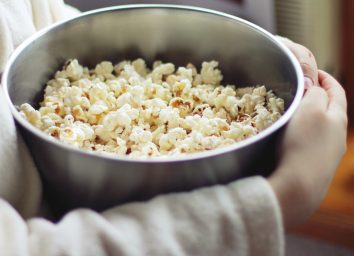7 Must-Buy Foods on a Healthy Grocery List, According to a Dietitian
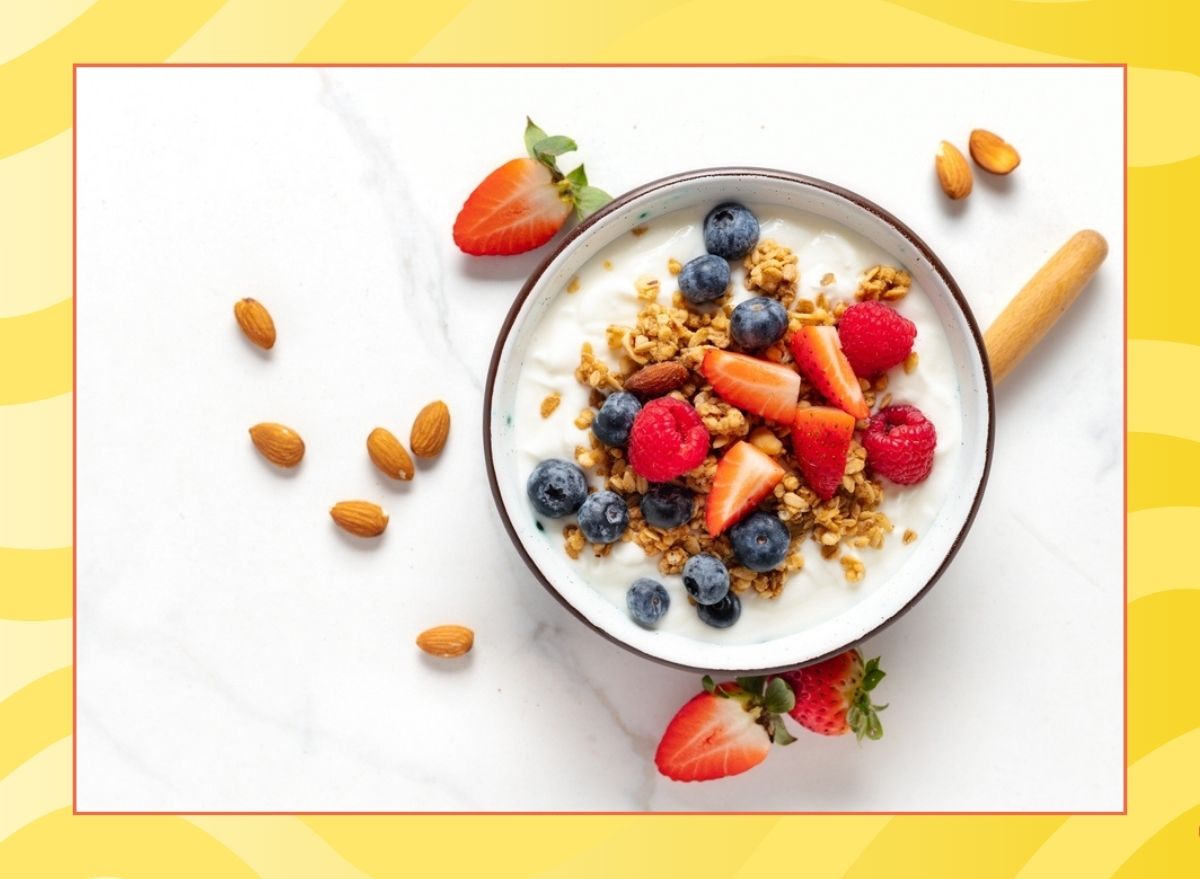
Eating healthier is no easy feat, but it’s one that you can begin to tackle by buying groceries packed with nutrients that are beneficial to your overall health in a myriad of ways. Once you bring the right greens, grains, proteins, and more into your home, it becomes much easier to consume food in a way that allows you to thrive, and not just survive.
However, since studies have shown grocery stores are designed to make money and not necessarily encourage consumers to make healthy choices, it’s important to know exactly how to navigate the endless labyrinth with seemingly unlimited choices so you can determine which items will put you on a path to living your best life.
To help you make intelligent and informed decisions about what to purchase the next time you hit Whole Foods or Kroger, we’ve consulted Keri Glassman MS, RD, and founder of Nutritious Life, for help on developing a healthy grocery list of nutrient-dense foods that will help to enrich your diet. For inspiration on what to do once you’ve filled your cart with these must-have nutritious superstars, take a look at this list of 40 Healthy Snack Ideas to Keep You Slim!
Leafy Greens
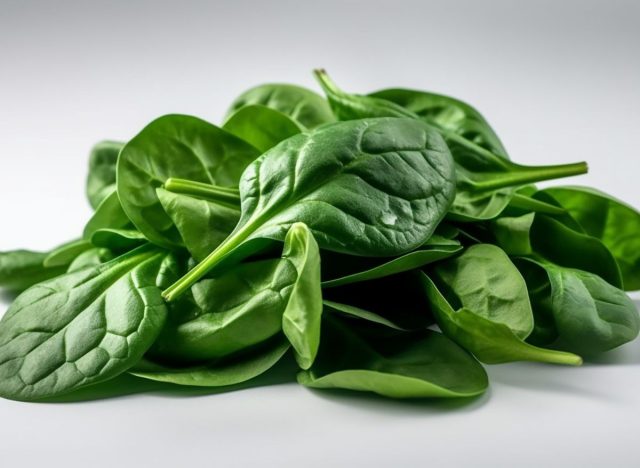
“Stock up on fresh produce,” Keri says, signaling out dark leafy greens including spinach, kale, chard, and arugula, and crunchy veggies such as romaine. “Adding these to any meal will give it an automatically nutritional punch, and the water and fiber volume will help you to become full, and stay fuller longer.” Aside from being satiating, which can lead to a slimmer waist, kale is an excellent source of Vitamin A, Vitamin C, Vitamin K, magnesium and absorbable calcium, while spinach contains more fatigue-crushing iron, bloat-banishing potassium, and folate.
In addition to the numerous health benefits of leafy greens, a report published in 2017 in the journal Neurology found that eating the nutrient-rich plants could make your mind 11 years younger. Researchers at Rush University and Tufts University studied 1,000 people and found that those who reported eating one to two daily servings of green leafy vegetables, such as kale, lettuce or spinach, had slower rates of cognitive decline.
Frozen Vegetables
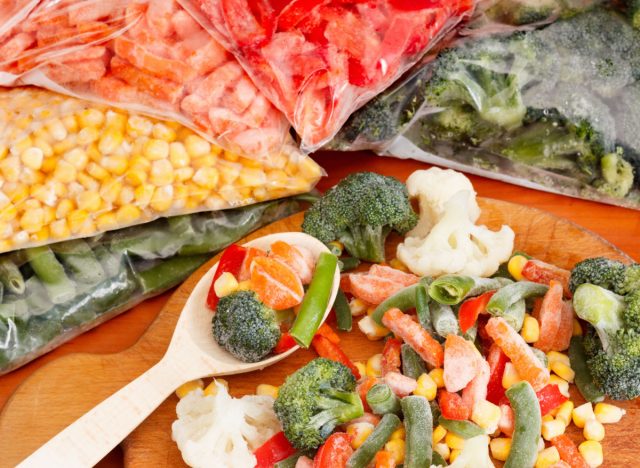
Sticking with the green theme, Keri also recommends stocking up on frozen veggies, which actually aren’t any less nutritious than their fresh counterparts. “Not only do [frozen vegetables] last much longer than fresh, unfrozen in your fridge, they can actually be more nutritionally dense than fresh because of the way they are flash frozen at the point of peak ripeness,” she explains.
Though that may sound strange, there’s evidence to back it up. According to a 2017 study conducted by researchers at the University of Georgia, some veggies, such as green beans and peas, actually retain more of their nutritional value when they are frozen compared to when they are bought fresh or stored in the refrigerator for a few days. Besides frozen spinach, we rounded up all our favorite frozen foods in our article, 10 Frozen Foods You Should Always Have on Hand & Why.
Pure Organic Fruit and Nut Bars
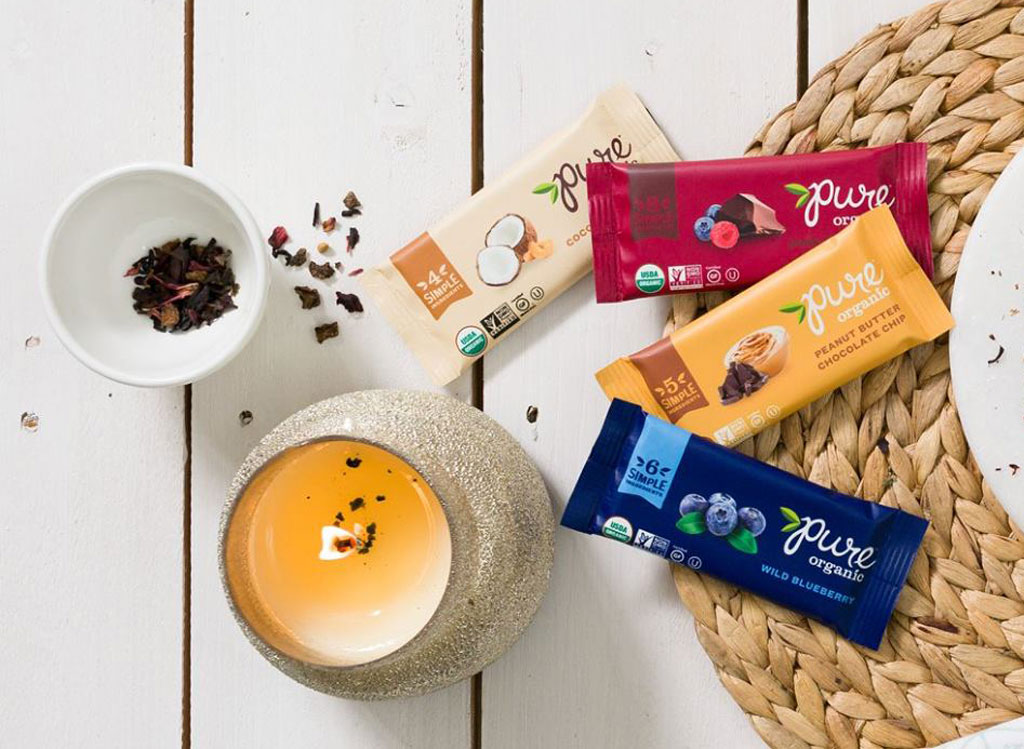
Since snacking has been shown to aid weight loss, it’s crucial to snack smart. “Buying the right groceries for making great meals is key, but snacking can really be the making or breaking of a healthy diet,” Keri warns. “Stocking up on bars that are organic, and made from real, whole ingredients will help you make good choices when you’re on-the-go.” Keri recommends Pure Organic’s new Fruit and Nut Bars since they are made with a handful of recognizable, simple, kitchen cupboard ingredients, and there are plenty of other bars on the market that suit a variety of different nutritional needs. For tips on how to find the bar that’s right for you and your diet, take a look at this list of The 16 Best Nutrition Bars for Every Goal!
Peanut Butter
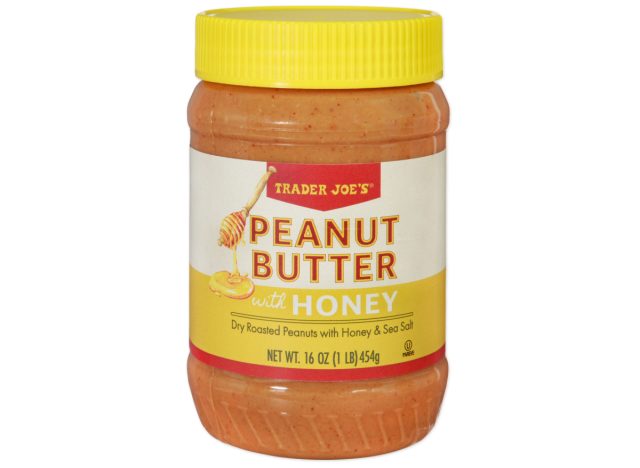
Keri loves peanut butter because it’s “protein dense, cost effective, and good for spreading, dipping, or adding to a smoothie,” but it’s important to know what kind of peanut butter to buy so you can best reap the nutritional benefits of the tasty treat. Those benefits include, waist-slimming monounsaturated fats, tummy-filling fiber, and metabolism-boosting protein. Peanuts also contain genistein, a compound that helps turn down the genes for obesity and reduces your body’s ability to store fat.
However, when peanut butter has added ingredients such as sugar or palm oil, they’ll undermine any good the peanuts might do, so that’s why Keri suggests you “take a peek at the label and look for minimal ingredients. The ideal being only two: nuts, and salt.” The more natural your peanut butter is, the more effective it will be at improving your overall health. For your best bets, check out our round-up: We Tested 10 Peanut Butters, And This Is The Best!
Wild Salmon
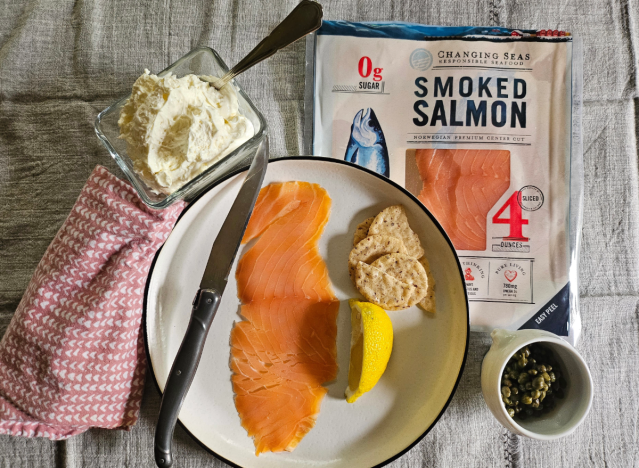
If you’re trying to eat healthier, purchasing salmon is a great start. Says Keri, “It’s a tasty, anti-inflammatory source of protein that’s also rich in omega-3s. These fatty acids [omega-3s] are also good for your gut and are associated with reducing risk factors linked to heart disease, such as high triglycerides, high blood pressure, and blood clotting.” When shopping for salmon, just make sure you buy the wild stuff instead of farm-raised salmon, which falls terribly short in the health department. Not a pro at cooking fresh salmon? Purchased a bag of smoked salmon and serve on whole-grain toast for breakfast—just watch out for the sodium levels.
Sprouted Grain Bread Or Ancient Grains
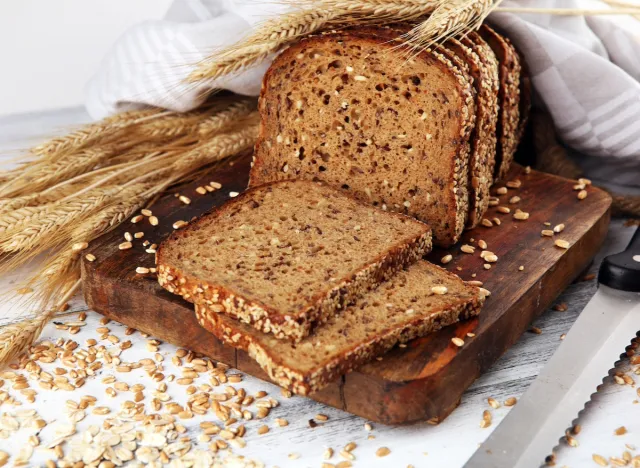
The bread aisle can be a daunting, anxiety-ridden place, but it doesn’t need to be. When you’re surrounded by loaves, rolls, baguettes, and more, Keri has a simple rule that will help you zero in on healthier options. “Look for products that are made with clean ingredients, including organic and sprouted grains that provide added health benefits compared to your normal loaf of wheat,” she advises. “Research has shown these grains are more easily digested, and are higher in fiber and other important nutrients like amino acids, B vitamins, and antioxidants.”
Calorie-Cutting Spices
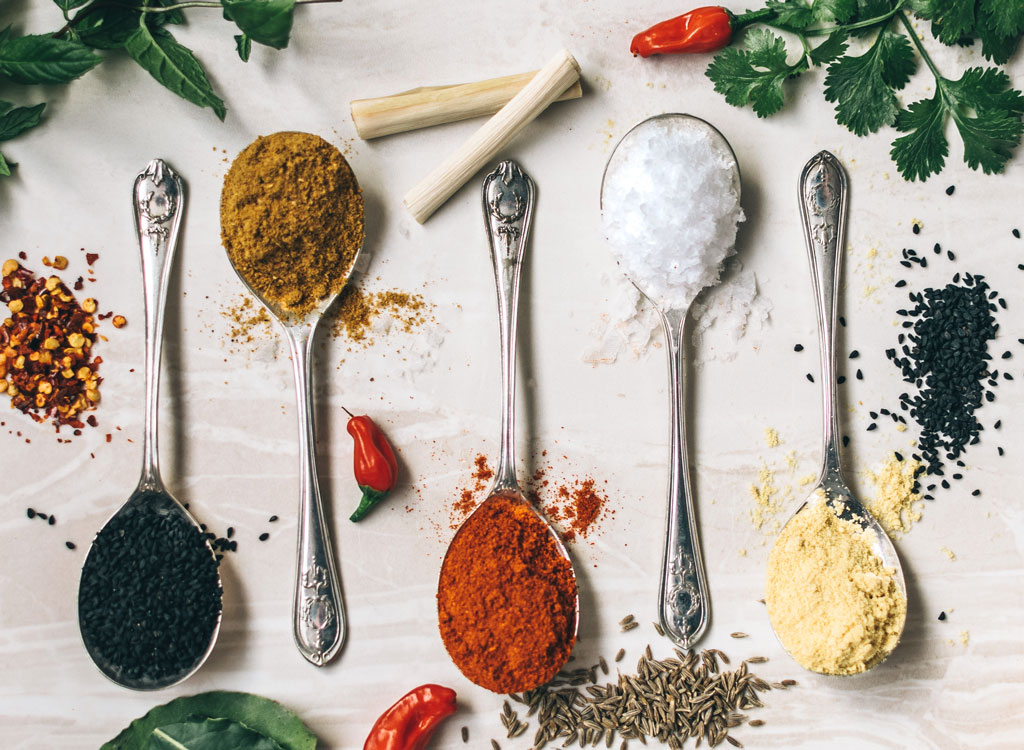
When trying to eat healthier, how you prepare food is almost as important as the food itself. You can have a beautiful piece of wild salmon, but if it’s drenched in butter or soaked in a sickeningly sweet sauce, it won’t do you much good. That’s why proper seasoning is key and why spices deserve a spot on your healthy grocery list. “When your food is seasoned well, it will be more satisfying, and even higher in antioxidants to boot,” Keri says. “Unlike sauces and condiments that are typically filled with refined sugar and other processed ingredients, spices allow you to boost the taste of food without adding additional calories. Stock up on oregano, cayenne, cinnamon, cardamom, turmeric, and get experimenting in the kitchen!”
In addition to cutting calories, many spices also have benefits of their own. Turmeric, for example, is an inflammation killer, while cinnamon has been lauded for its ability to help control blood sugar and prevent against diabetes. For dishes that call on these and a variety of other healthy spices, take a gander at this list of 35 Slow Cooker Recipes for Weight Loss!
